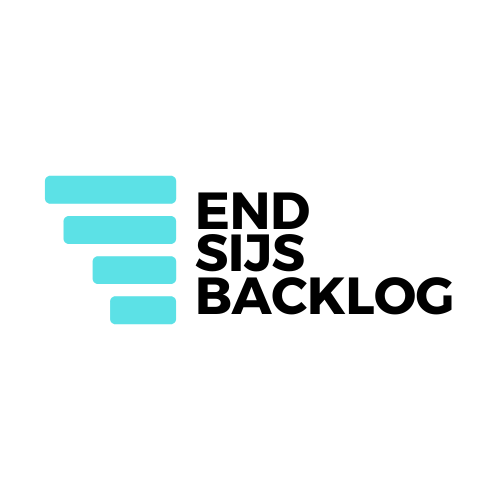About the SIJS Backlog
What Is Special Immigrant Juvenile Status (SIJS)?
Special Immigrant Juvenile Status (“SIJS”) is a congressionally created humanitarian protection designed to quickly provide permanent legal protections to immigrant children who have been abused, abandoned, or neglected by their parent(s). Recognizing the particular vulnerability of these children, Congress mandated that SIJS petitions be decided by USCIS within 180 days of their filing. SIJS allows a child to apply for permanent residence (aka a green card).
Image by Julia Kuo of The Marshall Project
What Is the Problem?
The law categorizes the SIJS green card application process as “employment-based,” subjecting it to numerical caps despite SIJS being a humanitarian status. As a result of the numerical caps, Special Immigrant Juveniles are impacted by a very large backlog and have to wait years to apply for green cards.
Note: Graphic is outdated and is from our 2023 report, “False Hopes: Over 100,000 Immigrant Youth Trapped in the SIJS Backlog” designed by Grace Han. On June 6th, USCIS terminated the Deferred Action policy for SIJS youth, and there are no new grants of Deferred Action at this time. As a result, any reference to deferred action or deferred action work permits on this graphic no longer reflects the current reality.
What Is the Human Impact?
There are over 100,000 vulnerable immigrant children caught in the SIJS backlog. Currently, all children from all countries face a years-long backlog, leaving them in legal limbo and without real permanent protection. As a result, children and youth who have already been approved by the government for protection and a pathway to lawful permanent residence live in constant fear of being detained and deported. SIJS youth cannot access federal financial aid for college, preventing them from reaching their full potential and prolonging young people’s dependence on legal services and state and local resources. But for the backlog, these young people could quickly go from being undocumented to lawful permanent residents, often within six months.
Graphic from “False Hopes: Over 100,000 Immigrant Youth Trapped in the SIJS Backlog” designed by Grace Han
SIJS Deferred Action and USCIS’s Termination of the Policy
Starting in 2022, SIJS youth were able to receive employment authorization and protection from deportation due to the USCIS SIJS Deferred Action Policy. This was a vital lifeline that SIJS youth desperately needed.
On June 6th, 2025 USCIS terminated the SIJS Deferred Action Policy, thus cutting off access to work permits and protections from deportation for SIJS youth. According to this policy, youth who apply for SIJS will no longer receive Deferred Action, and youth who have Deferred Action currently will not be able to renew it when it expires.
The termination of the Deferred Action policy for SIJS youth has created a devastating situation for SIJS youth everywhere. These young people have followed every legal step in the SIJS process to find safety in this country and are now at risk of losing their work authorization, are facing increased risk of detention or deportation, and are experiencing profound mental and emotional distress. The Coalition’s SIJS youth base has described feeling sad, helpless, frustrated, and overwhelmed with anxiety about the policy’s termination. One youth shared:
“When I found out the SIJS Deferred Action policy had been terminated, I felt a deep sense of fear and helplessness. It felt like the ground I had finally started to stand on was being taken away from under me. After everything I’ve been through—working multiple jobs, pursuing my education, fighting for my own emancipation—I finally had a glimpse of stability and peace. Hearing that the policy was gone made it feel like all of that could disappear in an instant.
I felt fear, frustration, and overwhelming anxiety. Fear of having to go back to living in the shadows, of once again hiding parts of myself and worrying every day about what might happen to me. Frustration because I’ve done everything I was told to do—studied, worked hard, contributed to my community—and still, it feels like I’m invisible. And more than anything, I felt this painful sense of being dehumanized. To be told that I couldn’t renew my protection or work permit was like being told I don’t matter, that I’m not seen as fully human in the eyes of this country.”
Why This Campaign?
The SIJS backlog undermines the humanitarian purpose of Special Immigrant Juvenile Status and congressional intent in creating a pathway to permanent protection for vulnerable immigrant children. The termination of the Deferred Action policy for SIJS youth has left thousands of immigrant youth who have already endured abuse, abandonment, and neglect even more vulnerable without a secure path to protection or stability. The End SIJS Backlog Coalition, a national group of directly impacted youth and allied advocates, educates Congress, relevant administrative agencies, and the public about the harmful impacts of visa caps on vulnerable immigrant children and advocates for an end to the SIJS backlog. We defend the right of SIJS youth to remain safely in the United States while also urgently demanding congressional action to end the SIJS backlog once and for all. In this moment of heightened risk, the voices of SIJS-impacted youth must be heard. Their stories guide us in this fight and are a powerful reminder of what is at stake: the ability for immigrant children to realize safety, stability, and permanent protection in the United States.
“It is important for me and other SIJS youth to have deferred action because we already have a history of having adult figures in our lives that we cannot count on, we have already gone through so much pain inflicted by the adults that are meant to protect us and to have the government come in and say there are options for protections for us and then change their minds and take that away again, it creates a cycle of trauma and continues to make it difficult for SIJS youth like myself to focus on the future because we are constantly focused on the fear of being detained and deported to a country that a court has already established is not in our best interest to return to.”




